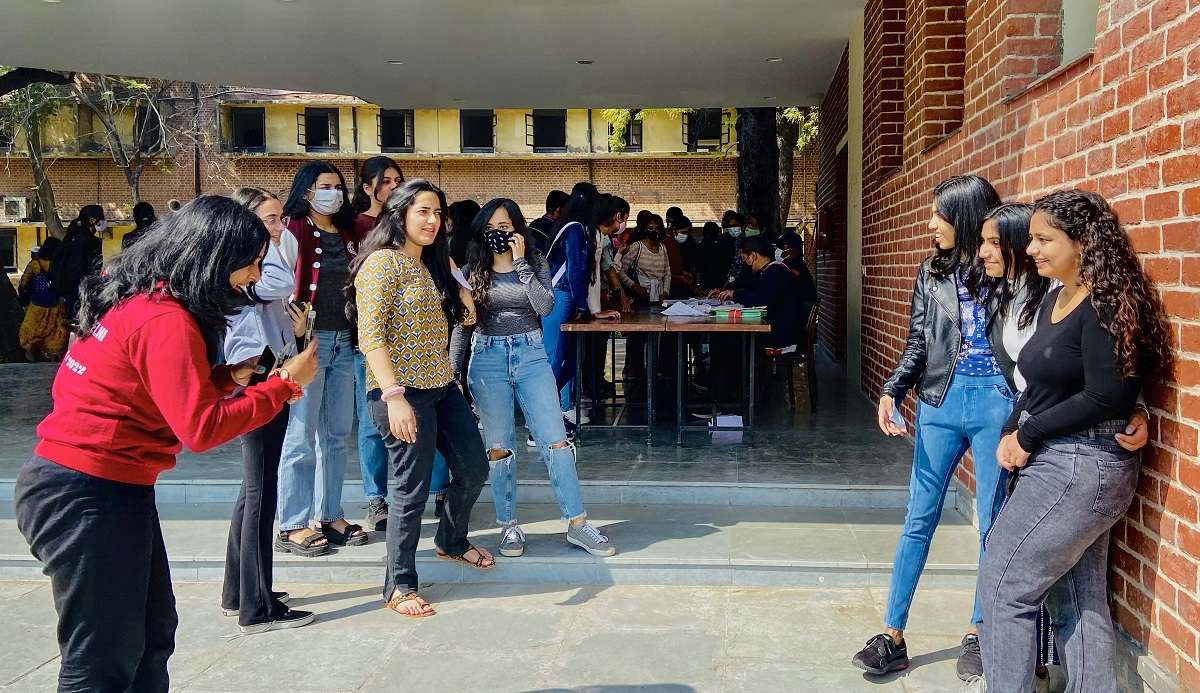Highlights
- The admission process for Delhi University undergraduate programs commenced on Monday.
- CSAS is an online platform that will facilitate the filling up of the application form for admission
- Besides, the new academic session of Delhi University is likely to begin on November 1.
Delhi University UG admissions: The admission process for Delhi University undergraduate programs commenced on Monday as the university launched the seat allocation portal or the Common Seat Allocation System (CSAS). It is an online platform that will facilitate the filling up of the application form for admission into the undergraduate programmes. Besides, the new academic session of Delhi University is likely to begin on November 1, said Vice-Chancellor Yogesh Singh.
He said the admission process will be conducted in three phases. The first phase will be to apply to the university through the portal, the second will be preference filling and the third phase will be seat allotment-cum-admission. The portal will remain open till October 3, giving students a 21-day window to apply for their desired undergraduate programmes.
There will be no offline filling up of the CSAS-2022 application form. The application number of the CUET (UG)-2022 will be mandatory to apply for CSAS-2022. Launching the CSAS-2022 portal, Singh said the registration process has started.
"Admissions will be done for more than 70,000 seats across 79 undergraduate courses in 67 colleges, departments and centres, including 206 combinations for the BA programme," he said. "While choosing the universities in the CUET form, as many as 6.14 lakh students showed interest in applying to the Delhi University. This is a big jump from the previous years' numbers," the VC added.
The application fee for CSAS-2022 will be Rs 250 for the unreserved, OBC and Economically Weaker Sections categories and Rs 100 for the SC, ST and PwBD category applicants. The DU has also decided that in the first round of seat allotment, each programme in each college will have an additional 20 per cent allocation in the unreserved, OBC and Economically Weaker Sections categories and 30 per cent in the SC, ST and PwBD categories, Singh said.
Depending on the availability of seats due to rejection, cancellation or withdrawal, the university may declare multiple allotment rounds. After the completion of the regular CSAS-2022 round, if seats remain vacant, it may announce a spot round for admission.
Provision for mid-entry for candidates who fail to apply for CSAS-2022
The DU will also be making a provision for mid-entry for the candidates who fail to apply for CSAS-2022 within the stipulated time due to any reason. On the occasion, Dean, Admission, Haneet Gandhi gave detailed information about the admission process.
"Candidates willing to take admission in the Delhi University will have to apply through the CSAS-2022 application form only. The application number of CUET (UG)-2022 will be mandatory to apply for CSAS-2022. The personal details such as names, photographs, signatures etc. submitted by the applicants during CUET (UG)-2022 will be automatically integrated in CSAS-2022," she said.
Gandhi said the second phase of the CSAS will start after the declaration of the CUET (UG)-2022 results. In this phase, the candidates will have to select their programmes and college combination and fill their preferences.
DU's policy for admission to non-minority seats also applicable to St Stephen's College, directs HC
Holding that the rights accorded to a minority institution under the Constitution cannot be extended to non-minorities, the Delhi High Court directed the St Stephen's College to follow the admission policy formulated by the Delhi University and give 100 per cent weightage to the CUET-2022 score while granting admission to non-minority students in its undergraduate courses.
A bench headed by Chief Justice Satish Chandra Sharma said the college has the authority to conduct interviews, in addition to the Common University Entrance Test (CUET), for the admission of Christian students but it cannot force the non-minority candidates to additionally undergo an interview.
(With PTI Inputs)

